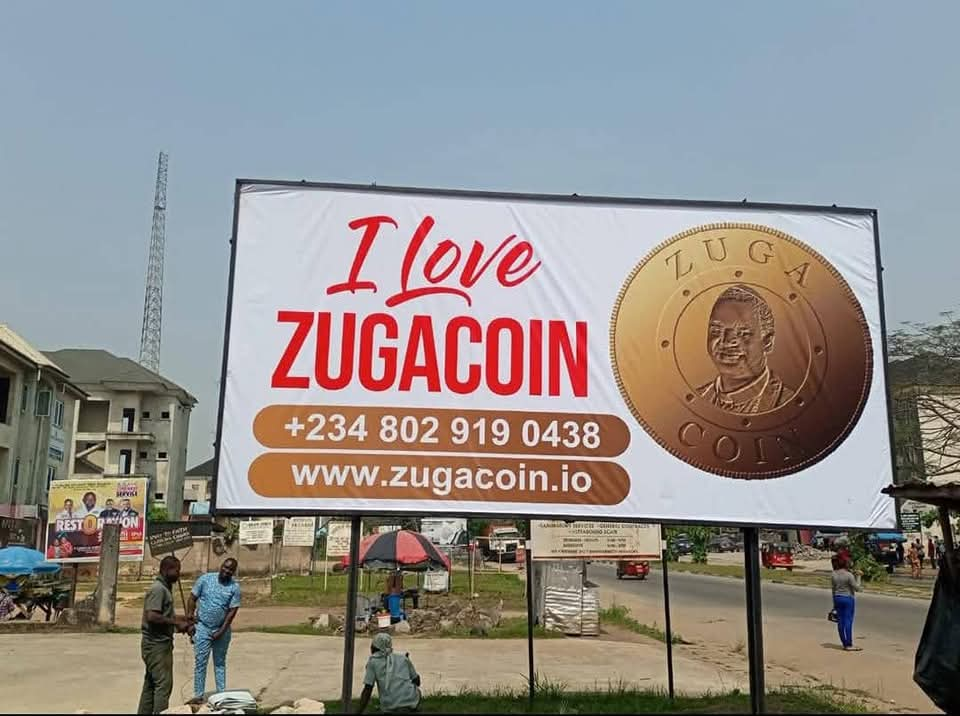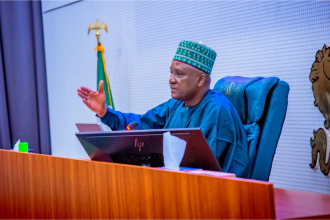Nigeria continues to play a leading role in Africa’s digital economy, producing entrepreneurs and visionaries who are reshaping how the continent interacts with emerging technologies. One of the more unconventional figures in this space is Bishop Sam Zuga, PhD, the first Nigerian cleric widely acknowledged to have launched a native digital coin: ZugaCoin (SZCB). Bishop Zuga’s activities sit at the intersection of faith, finance and technology a combination that attracts enthusiastic support as well as pointed skepticism.
Background: From ZugaCoin to a Digital Ecosystem
ZugaCoin (SZCB) first emerged in 2020 amid rising crypto adoption in Nigeria. Market conditions driven by inflation, currency depreciation and rising fintech usage made cryptocurrencies an attractive alternative for many Nigerians. ZugaCoin was framed by Bishop Zuga as a purpose-driven digital currency focused on wealth distribution, charitable causes and financial inclusion.
While ZugaCoin’s profile was amplified by its unique origin a religious leader creating a token with social goals critics pointed to questions around liquidity, adoption and regulatory clarity. Nonetheless, the token carved out a visible niche in a crowded market and paved the way for Bishop Zuga’s broader ecosystem ambitions.
The Expansion: ZugaGPT, HHC and a Digital Asset Bank
ZugaGPT: AI Meets Crypto
ZugaGPT is presented as a hybrid platform that combines artificial intelligence features with crypto financial services. The platform’s headline capabilities include daily withdrawal options and internal transfer flexibility. According to public communication from the Zuga team:
- $1,000 daily external withdrawals are available to eligible users.
- Unlimited internal withdrawals and transfers are permitted inside the ecosystem.
- Registration is hosted at app.samzugagpt.com and the app is reportedly available on the Play Store.
ZugaGPT accepts a limited set of cryptocurrencies for transactions inside the platform: ZugaCoin (SZCB), BNB, USDT, and Healing Hands Coin (HHC). These restrictions shape the liquidity profile and the internal economy of the platform.
Healing Hands Coin (HHC)
Healing Hands Coin (HHC) is positioned as a utility token within the Zuga ecosystem. It ties to Bishop Zuga’s pastoral identity a symbolic emphasis on healing and is used within staking structures and platform transactions. HHC’s adoption inside the ecosystem may support charitable initiatives and ecosystem-specific use cases.
Africa’s First Digital Asset Bank
Arguably the most ambitious component is the digital asset bank. Unlike traditional banks, this entity is designed to operate primarily through blockchain infrastructure, offering deposit, withdrawal, staking and transfer services based on digital currencies. The bank’s goals include lowering barriers to financial services, expanding digital asset custody and enabling more seamless crypto payment rails for users across Africa.
Technical Details: Token Contracts and Staking Plans
The Zuga ecosystem uses a multi-token structure on Binance Smart Chain. Below are the publicly stated contract addresses and roles (provided here strictly for informational purposes):
| Token | Contract Address | Primary Use |
|---|---|---|
| ZUGACOIN (SZCB) | 0x702371e0897F5E2f566B1cE8256856D0549c5857 | Staking (Plans A–C) |
| ZUGACOIN (SZCBII) | 0xfd0310733a6718167834c1fcdffdedb80b44e9d3 | Staking (Plans D–E) |
| HEALING HANDS COIN (HHC) | 0x6cf3cCE0B577516bBC63828743E0E75Ab41f1c01 | Staking (Plans D–E) |
| ZUGACOIN (SZCB2) | 0xb4e62a01909f49fc30de2bf92f3a554f2f636360 | Transaction charges |
Staking plans range across multiple tiers (Plan A–E). The multi-contract approach is intended to segregate token functions — for example, differentiating between tokens used for staking rewards and those used for transaction fees. Readers should exercise caution; smart contract interactions carry technical and financial risks, and independent verification (via block explorers and audits) is recommended.
What Bishop Zuga Says the Ecosystem Will Achieve
Public messaging from Bishop Zuga and the Zuga team frames the ecosystem around several policy goals and social outcomes:
- Financial inclusion: Provide access to banking-like services for populations that are underbanked or unbanked.
- Wealth distribution: Offer pathways for ordinary people to participate in staking plans and ecosystem activity.
- Local technological empowerment: Build African-first solutions that enable developers and entrepreneurs to deploy real services on-chain.
These ambitions align with broader technology and development narratives on the continent. However, turning these ambitions into measurable outcomes requires robust adoption, transparent governance and regulatory alignment.
Adoption, Accessibility and Support
To participate in the Zuga ecosystem, users are directed to register at app.samzugagpt.com and download the mobile application from the Play Store. The platform’s support features include an in-app chat labeled as the Samzuga GPT Support Team for assistance.
Accepted currencies within the platform are limited to ZugaCoin, BNB, USDT and HHC. This approach can streamline internal operations but also creates dependency on the liquidity and exchange availability of those assets. Accessibility is further shaped by user experience, KYC processes (if any), and the ease of onboarding new participants.
Opportunities and Potential Benefits
If Bishop Zuga’s ecosystem performs as advertised, the potential benefits include:
- Improved financial access: A digital asset bank could bring basic financial services to populations who lack traditional banking.
- Value capture for local actors: Processing, staking and in-ecosystem commerce could create income streams for ordinary users.
- Innovation model: A successful deployment could serve as a blueprint for other African-led blockchain initiatives.
Combined with clear governance and transparent auditing, these features could give the ecosystem legitimacy and traction.
Risks, Concerns and Caveats
No coverage of a nascent crypto ecosystem would be complete without identifying material risks. Responsible reporting and compliance with Google AdSense and Google News policies demand that claims of guaranteed returns or unfounded promises be avoided. Key risks include:
- Regulatory risk: Nigeria’s financial regulators take a cautious stance on digital currencies. Future regulation could affect platform operations, exchange access, or even user participation.
- Liquidity risk: Limited listings on major exchanges can produce price volatility and difficulty converting tokens to fiat.
- Operational risk: Smart contract vulnerabilities, platform outages, or poor customer service can undermine confidence.
- Reputational risk: Association with faith-based leadership may attract both strong loyalty and strong scrutiny.
- Verifiability: Claims about accessible withdrawals, daily limits and internal transfer rules should be independently tested by users and journalists before being taken at face value.
Regulatory Context and What It Means for Users
Nigerian regulators, including the Central Bank of Nigeria (CBN) and the Securities and Exchange Commission (SEC), have previously issued guidance and restrictions around crypto activity. While recent years have seen a more pragmatic approach, regulatory uncertainty remains. For a platform like ZugaGPT and a digital asset bank, compliance with local AML/KYC rules and any forthcoming crypto regulations will be critical.
Users should therefore seek clarity on the platform’s compliance posture: How does the platform handle KYC? Where are custodial services domiciled? Are tokens audited publicly? These are not rhetorical questions they directly affect users’ legal exposure and the platform’s long-term viability.
Comparisons and Precedents
Globally, several projects have attempted to combine blockchain, banking services and AI. The Zuga model is distinctive because it originates from a faith leader with strong community ties. Similar initiatives elsewhere whether community-based token projects, faith-driven charities using crypto, or AI-fintech hybrids provide lessons in scaling, governance and the need for transparent audits.
For example, successful crypto-banking experiments prioritize clear custody arrangements, audited smart contracts, and regulated partnerships with licensed payment rails. Zuga’s ecosystem will likely need to foster such relationships to achieve broad credibility.
Voices of Support and Skepticism
Bishop Zuga enjoys vocal supporters who cite his charitable work and local credibility as strategic advantages. Supporters argue that faith-based leadership can accelerate trust and community onboarding, particularly in regions where clergy wield social influence.
Conversely, skeptics caution against conflating spiritual leadership with financial products, warning that communities may be particularly vulnerable to pressure or influence when church and finance intersect. Independent oversight and transparent governance are essential to avoid conflicts of interest.
Practical Steps for Interested Participants
- Verify official channels: Use only the official registration link (app.samzugagpt.com) or verified mobile apps on recognized stores.
- Confirm contract addresses: Cross-check token addresses on reputable block explorers and with official communication from the Zuga team.
- Start small: If testing the ecosystem, allocate limited funds until you are comfortable with operations and withdrawal processes.
- Monitor community feedback: Engage with independent forums, reviews and third-party analyses to gauge platform reliability.
Broader Impact: What Success Might Look Like
Should Bishop Zuga’s ecosystem scale successfully, the implications could be meaningful:
- Greater financial inclusion: Hundreds of thousands potentially millions could gain access to digital financial services.
- New local industries: Crypto staking, digital payments, and blockchain-enabled entrepreneurship could generate jobs.
- Regional leadership: Africa could see more locally-designed blockchain solutions that reflect local priorities and social structures.
Even partial success for example, improved remittance flows or simplified charitable giving would represent a positive outcome for many communities.
Conclusion
Bishop Sam Zuga’s work sits at the confluence of ambition, faith and technology. ZugaCoin, ZugaGPT, Healing Hands Coin and the digital asset bank together present an audacious experiment in African-led fintech innovation. The potential benefits are substantial from financial inclusion to local value creation but so are the risks.
Responsible adoption will depend on transparent governance, regulatory compliance, clear auditing, and the ability to demonstrate reliable operational performance (notably withdrawals and transfers as claimed by the team). For observers and potential participants, the prudent approach is to remain informed, skeptical, and cautious, while acknowledging the novel opportunities such an ecosystem could offer to Nigeria and the wider continent.













📸 CREATIVE PHOTO CONTEST — AI EDITION
https://www.facebook.com/share/1CimhZWvh7/
🎉 *CHALLENGE*: Post an *AI-generated image* that represents your *favorite brand*!
Whether it’s a reimagined product, a visual universe, or a vibe inspired by the brand—let your creativity shine.
🔖 *To enter*:
– Use the hashtag *#MyBrandAI*
– Tag *@CoLabBrands*
– Add a short caption explaining your choice
🏆 *Prizes*:
The 3 most original creations will be featured on our page and receive surprise gifts from partner brands 🎁
#MyBrandAI #AI #IA #CoLabBrands @CoLabBrands